The Phoenician Scheme: Wes Anderson finds inspiration everywhere, including in fatherhood
Wes Anderson is one of the most original filmmakers working today, known for a distinct visual style. But his films are so much more than that.
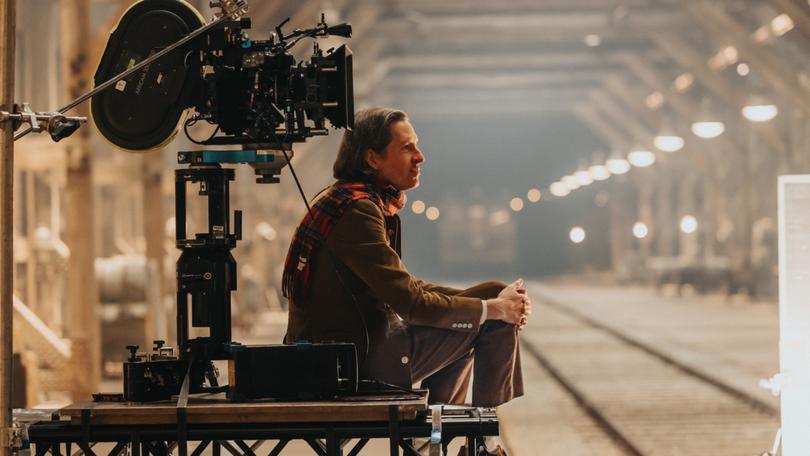
Wes Anderson famously has a phobia of flying.
So, what should we read into him creating a character who has survived six plane crashes, including the one which opens his latest film, The Phoenician Scheme?
“Yes, I wonder why,” he told The Nightly over Zoom from Cannes, where he will premiere his 12th film. “The thing is, I like aeroplanes. In The French Dispatch, we had a scene on a sleeper aeroplane. I’ve always loved the old aeroplanes that had bunks on them. There was one called the Clipper, a regular trans-Atlantic flight with beds on them.
Sign up to The Nightly's newsletters.
Get the first look at the digital newspaper, curated daily stories and breaking headlines delivered to your inbox.
By continuing you agree to our Terms and Privacy Policy.“But, it’s probably (because) I’ve envisioned enough plane crashes along the way that it probably gave (me) an advantage.”
It shouldn’t surprise anyone who has a passing familiarity with Anderson and the specificities of his cinematic style that, of course, he like planes. He also like boats, trains and automobiles. He loves how things work, how things look and how things make people feel.
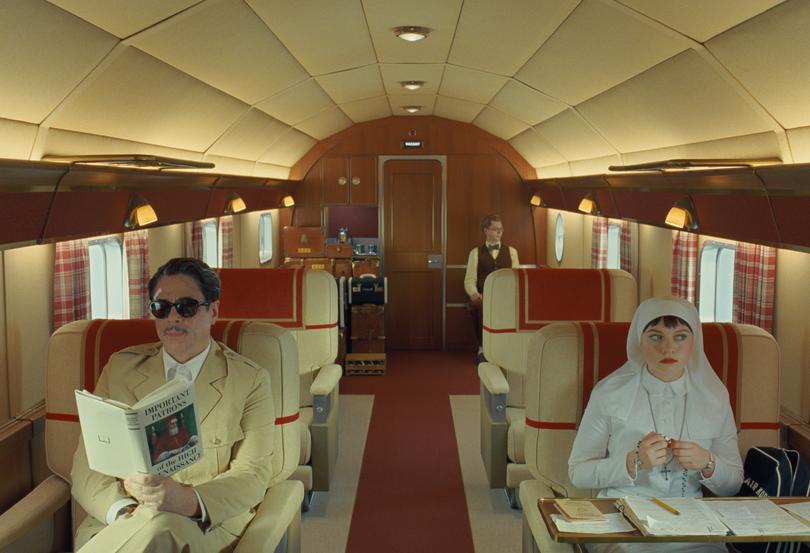
When Anderson stages a train journey, as he has in The Darjeeling Limited, Asteroid City and The Grand Budapest Hotel, you get to see the cross-section of the transport, all the compartments occupied by different characters, each caught in a moment of their story, as if they were illustrations in a Richard Scarry book.
As much as the Texan-born, Europe-based (he lives in Paris and the UK) Anderson wants to draw your attention to the Rube Goldbergian mechanics of how a machine works, each frame serves a double purpose.
For the past three decades, Anderson’s reputation as a filmmaker has firmed as someone with an idiosyncratic and precise visual style. His aesthetics favour a colourful palette, meticulous camera placement, elaborate costuming and production design, and clever details such as symmetrical shots.
His style has inspired the popular Instagram feed and book, Accidentally Wes Anderson, and is so distinct, that his name is a shorthand for a whimsical confection visual, like the pink and pistachio green-iced Courtesan au chocolat pastry in The Grand Budapest Hotel.
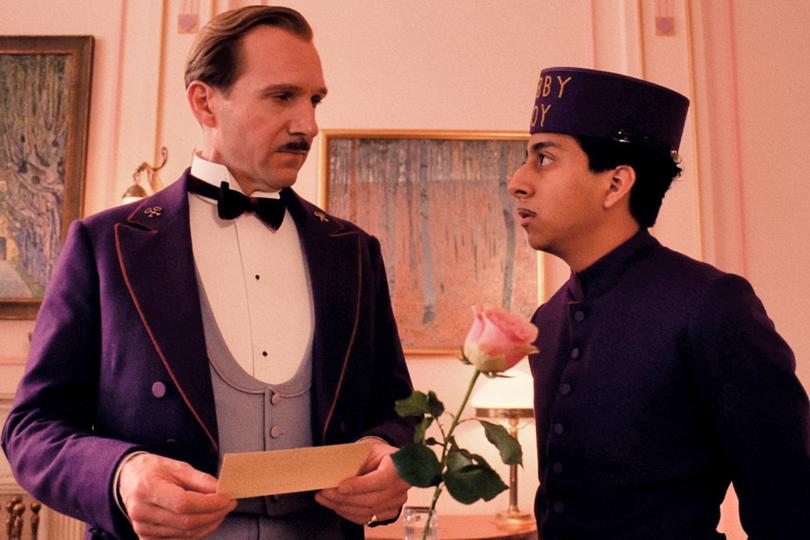
“He’s absolutely his own voice. I think if you’re watching TV and you’re changing the channels and an image of one of his movies pop on, it’s (obviously) a Wes Anderson movie. It’s incredible,” Benicio del Toro said.
Del Toro is the star of The Phoenician Scheme, a comedy Anderson created specifically with the Puerto Rican actor in mind after the two worked together on one of the three anthologies in The French Dispatch.
It was at Cannes in 2021 at the premiere of The French Dispatch when Anderson turned to del Toro and told him he had a new project for him.
The Phoenician Scheme is the story of Zsa-Zsa Korda, a European industrialist and survivor of many assassination plots. After the latest attempt against his life, Zsa-Zsa calls on his daughter, Liesl (Mia Treapleton, Kate Winslet’s daughter), and brings her into the family business, despite her protestations.
Liesl is a novitiate nun, so doesn’t approve of Zsa-Zsa’s casual relationship with morality.
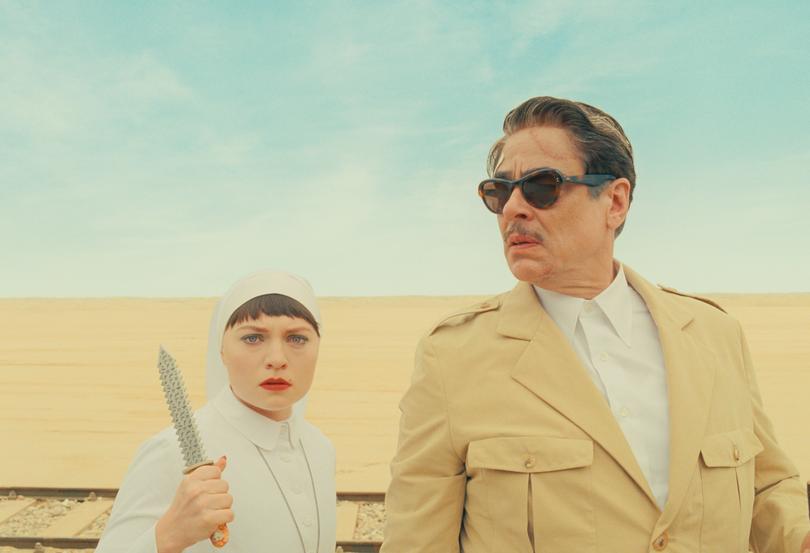
He is a mogul, a man who has exploited, extorted and sanctioned violence to get what he wants. With his life once again threatened, he wants Liesl to know the ins-and-outs of his latest venture so that she can carry on. He takes her on a whistle-stop tour visiting business partners and family to complete the deal, while confronted with his very real mortality (“Death is everywhere in this one,” Anderson said).
“Let’s face it, having the chance to play this character in a Wes Anderson movie, it’s a gift to any actor,” del Toro said. “The character has an incredible arc, but it’s very human and the arc is full of hope, in my opinion.
“We talked about how important the influence of the daughter was, and how it was laid out throughout the story. It’s not just one moment, it’s the little things that takes the character and points him in the right direction for a hopeful ending.”
That’s the other side of Anderson’s work. Because he’s so renowned for his visual identity, the filmmaker’s fidelity to his characters’ emotional states is sometimes overlooked or understated.
The Phoenician Scheme only works because Zsa-Zsa grows and changes as a result of his relationship to Liesl. There is as much care that goes into the humanity of Anderson’s characters as there is into the specific typography he uses.
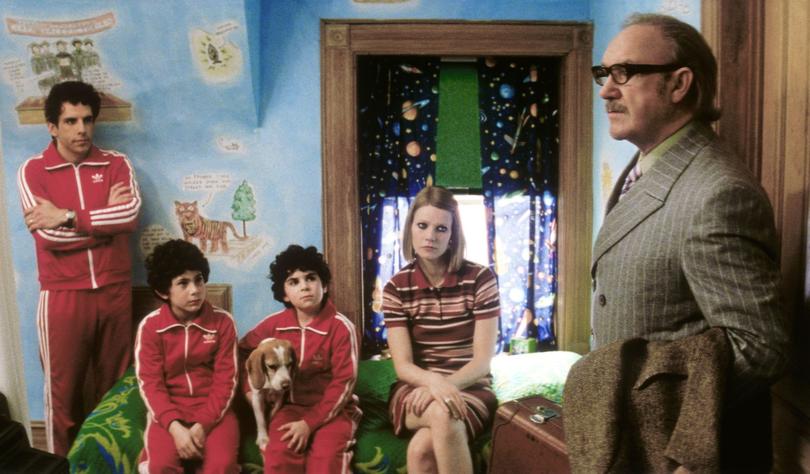
The parent-child rapport is a recurring theme in his work, whether it’s biological or de facto, present or absent.
Royal Tenenbaum tried to reconcile with his prodigy kids that he left; the Darjeeling Limited brothers were in search of their mother while processing their grief for their father; Rushmore’s ambitious teenager Max was dissatisfied with his dad’s humble profession so tethered on to the more successful Herman, who, in turn, couldn’t believe his own sons were the fruit of his loins; Gustave H is a mentor to Zero Mustafa in The Grand Budapest Hotel; and Ned is convinced his hero Steve Zissou is his long-lost dad.
But there is something different, almost more tender, a more grounded verisimilitude, beneath the curt exchanges between Zsa-Zsa and Liesl, perhaps influenced by Anderson’s adventures in parenthood.
“I have a daughter who is nine and it wasn’t like I was deliberately thinking, ‘Let me explore what this dynamic is like that I’m experiencing’,” he explained. “They’re made-up characters but still, I feel it’s such a central thing in my life, and a newish thing in my life, that it probably wouldn’t be a story about a father and daughter if I didn’t have one.
“There are different people who I’ve read about and who I’ve known who have (gone) in the character, and my conception of (Zsa-Zsa) also relies a lot on the fact that I pictured Benicio in this role from the beginning.
“But as soon as I’m writing, working on a scene where there’s a father and daughter, somehow my raw materials are different now than they used to be, and there are so many things that are peculiar to that dynamic of a father and daughter.”
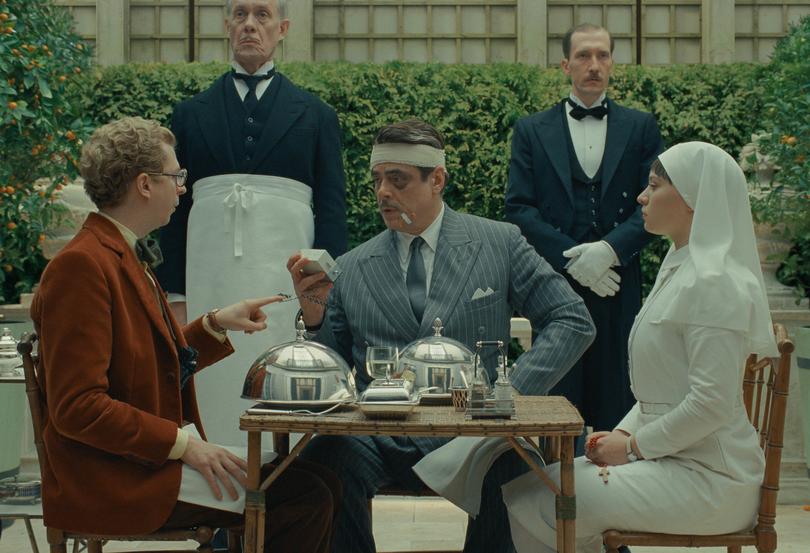
Anderson’s daughter, Freya, is in the film, he excitedly pointed out. She is dressed up as an angel in two scenes, one in a tableau with God (played by Bill Murray, because who else), and another in which she is dancing.
“The movies that I’ve made ever since she was born, she sees me working on them,” he added. “We do a lot of the editing at home, and even if she’s not sat down and watched this movie, which she hasn’t, I think she’s probably seen every scene at some point and criticised them.”
Whether he’s drawing from his life with his daughter or from his fear of flying, Anderson is a sponge, soaking up influences. He has long talked about the filmmakers he’s admired, everyone from Jean-Luc Godard and Francois Truffaut to Hayao Miyazaki and Akira Kurasawa.
Bottle Rocket, the first feature film he made, co-written with and starring Owen Wilson, his university friend, was informed by myriad sources as diverse as The Catcher in the Rye and documentary Murita Cycles.
It’s been 29 years since Bottle Rocket launched his, Wilson and Luke Wilson’s careers, but Anderson never comes off as jaded.
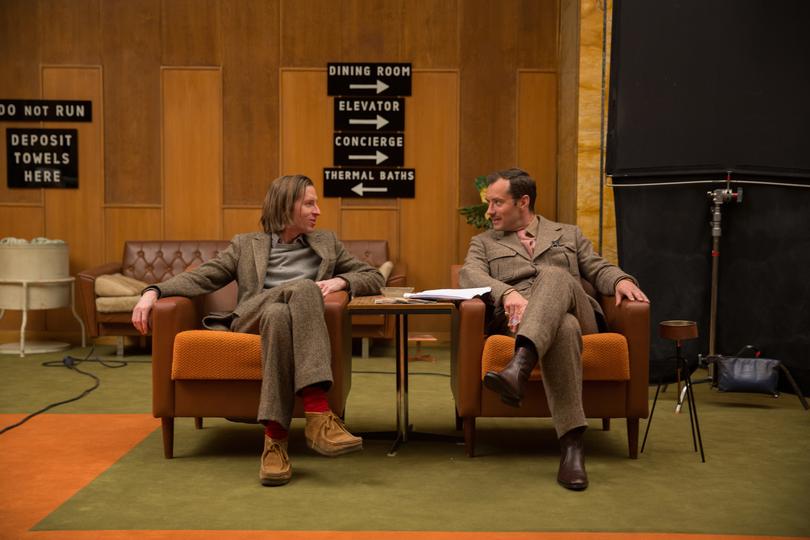
He is excited and stimulated by everything around him. “There’s never any shortage, there’s always something new,” he said.
Walking around Cannes this year, he stopped in a vast sculpture garden he’d visited before. “There are new pieces there, and there’s also architecture there, and my experience is filled with things where I’m thinking, ‘This makes me want to do something, even if it is something I’m probably not going to do, like build a building’.
There’s also a documentary about the late Austrian conductor, Herbert von Karajan, that actor Jeffrey Wright gave him a year ago, and that he just watched.
“I watched this thing and I felt like it was about this famous conductor who decided he wanted to preserve his legacy by making movies about himself,” Anderson recalled. “He wanted to film himself with the orchestra, he’s saying he wants to film the recordings, but essentially he wanted to film his performances.
“It’s the most interesting, dynamic thing. Anyway, it’s just some German documentary, but I feel like there is always something new coming.”
Anderson may not make a movie about a conductor, his version of Tar or Maestro, but he definitely gave the impression that he is nowhere near done. Whatever legacy he is trying to preserve is not set.
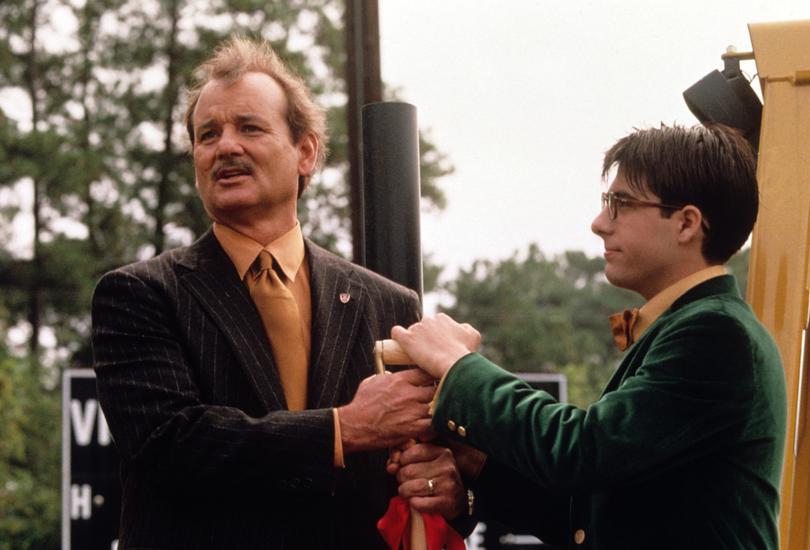
Fans might imagine Anderson is some mercurial character straight out of one of his films. In some ways, he is the person you want him to be – he was that day wearing his summer uniform of a seersucker suit, in winter he prefers corduroy or velvet – but he also comes off as a normie, easy-going and unguarded.
Del Toro said what people might be surprised to learn about Anderson is his sense of humour and energy, “I’m amazed at his energy. He could run a marathon and get a medal in any Olympics. He has incredible stamina.”
Anderson doesn’t run, he confessed, but he does have a tendency to be a jack rabbit during location scouting. “When you’re making a movie, you have to have a lot of stamina. I have noticed that I get very energised during location scouting, I have a tendency to leave the team behind and say, ‘Where is everybody?’.”
It’s something else del Toro mentioned about The Phoenician Scheme that stuck – that it’s hopeful. Even though his characters go through dark experiences such as encroaching fascism or abandonment, Anderson’s films end on a high note, sometimes a little melancholic, but never on a downer. His characters are fundamentally good, and the ones that aren’t, have met justice.
Should we infer from them that he is, above all, an optimist?
“Yes. I think that’s the case,” he answered, quickly. “I mean, that’s what my wife tells me, because sometimes I think she finds that I’m a little too upbeat for her personal preference.”
The Phoenician Scheme is in cinemas on May 29

